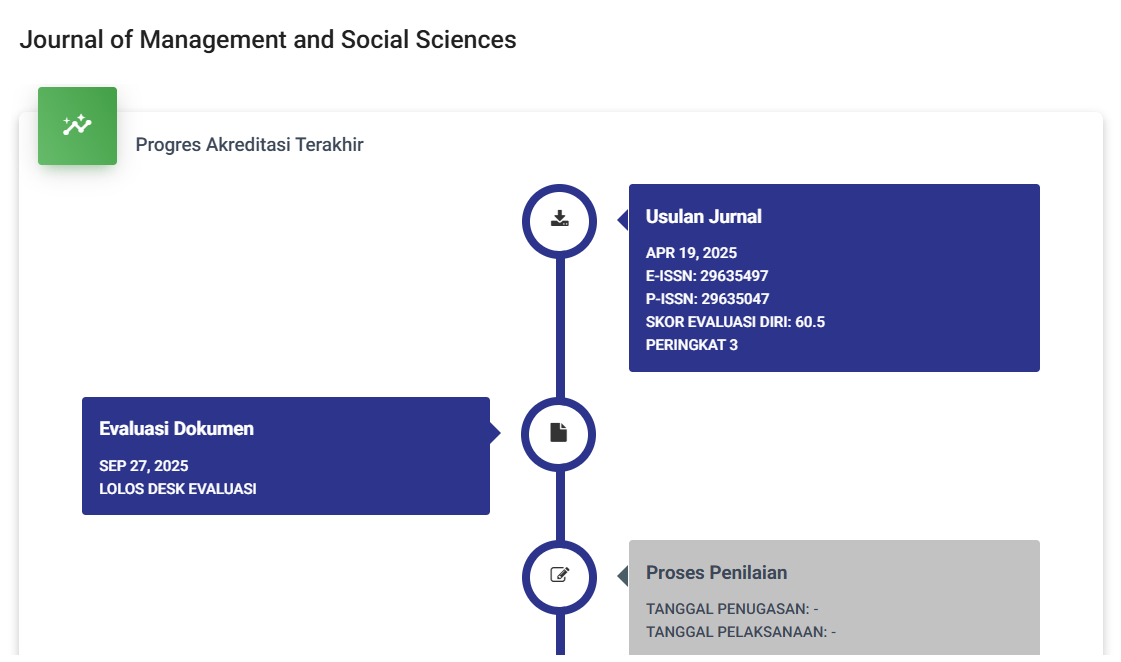Understanding How Democratic Parenting Style, Single Parent Resilience, School Environment, And Religious Education Influence Child Character Development
DOI:
https://doi.org/10.55606/jimas.v1i2.1110Keywords:
Character Development, Parenting Styles, Qualitative ResearchAbstract
This study aims to investigate the impact of democratic parenting style, single parent resilience, school environment, and religious education on child character development. Through an exploratory approach, the research seeks to understand the intricate interplay between these factors and their effects on shaping children's character traits. The study employs purposive sampling to gather insights from diverse perspectives, including parents, educators, and religious leaders. Data analysis involves thematic coding to identify recurring patterns and themes within the narratives. Initial findings suggest that democratic parenting fosters independence and empathy in children, while single parent resilience contributes to resilience-building. Additionally, the school environment and religious education play significant roles in instilling moral values and ethical principles. These findings underscore the multifaceted nature of child character development and highlight the importance of considering various influences in nurturing well-rounded individuals.
References
Benny, B., Hermawati, O., Mustikasiwi, A., Djap, W., & Irawan, D. (2021). Students’ Attitude Toward Character Building Courses at Bina Nusantara University. JIIP - Jurnal Ilmiah Ilmu Pendidikan, 4(7), 572–577. https://doi.org/10.54371/jiip.v4i7.315
Berkowitz, M. W., & Bier, M. C. (2007). Research-based character education. The ANNALS of the American Academy of Political and Social Science, 591(1), 72-85.
Braun, V., & Clarke, V. (2006). Using thematic analysis in psychology. Qualitative Research in Psychology, 3(2), 77-101.
Creswell, J. W., & Poth, C. N. (2018). Qualitative inquiry and research design: Choosing among five approaches. Sage Publications.
Darling, N., & Steinberg, L. (1993). Parenting style as context: An integrative model. Psychological Bulletin, 113(3), 487-496.
Djap, W., Mustikasiwi, A., Hermawati, O., Irawan, D., & Santosa, E. (2021). The Resilience of Single Mothers with Special Needs Children in Supporting Their Education and Fulfilling Their Needs During The COVID-19 Pandemic. IJDS: Indonesian Journal of Disability Studies, 8(02), 425–439. https://doi.org/10.21776/ub.ijds.2021.008.02.10
Dornbusch, S. M., Ritter, P. L., Leiderman, P. H., Roberts, D. F., & Fraleigh, M. J. (1987). The relation of parenting style to adolescent school performance. Child Development, 58(5), 1244-1257.
Guest, G., Bunce, A., & Johnson, L. (2006). How many interviews are enough? An experiment with data saturation and variability. Field Methods, 18(1), 59-82.
King, P. E., & Boyatzis, C. J. (2015). Exploring adolescent spiritual and religious development: Current and future theoretical and empirical perspectives. Applied Developmental Science, 19(4), 307-320.
Krueger, R. A., & Casey, M. A. (2015). Focus groups: A practical guide for applied research. Sage Publications.
Lickona, T. (1991). Educating for character: How our schools can teach respect and responsibility. Bantam.
Osborne, C., & McLanahan, S. (2007). Partnership instability and child well-being. Journal of Marriage and Family, 69(4), 1065-1083.
Patton, M. Q. (2002). Qualitative research and evaluation methods. Sage Publications.
Roehlkepartain, E. C., Benson, P. L., King, P. E., & Wagener, L. M. (2006). The handbook of spiritual development in childhood and adolescence. Sage Publications.
Ruslaini, R., Sugiharti, T., Hermanu, D. H., Wulandari, W., & Harahap, S. (2021). Studi Fenomenologi Pola Asuh Anak oleh Wanita Indonesia dalam Perkawinan Campur di Eropa dan Kanada. Perspektif, 10(2), 656–663. https://doi.org/10.31289/perspektif.v10i2.5003
Smith, J. A., Flowers, P., & Larkin, M. (2009). Interpretative phenomenological analysis: Theory, method, and research. Sage Publications.
Downloads
Published
Issue
Section
License
Copyright (c) 2022 Salsabila Andrina, Ranti Karlaili

This work is licensed under a Creative Commons Attribution-ShareAlike 4.0 International License.








